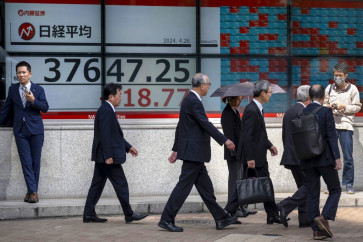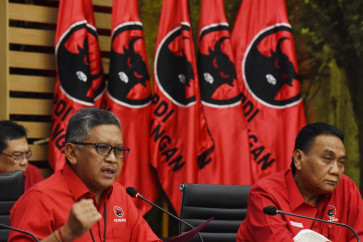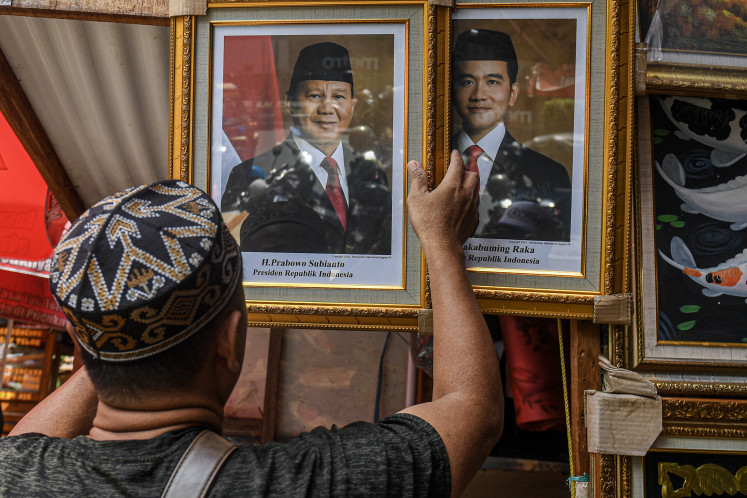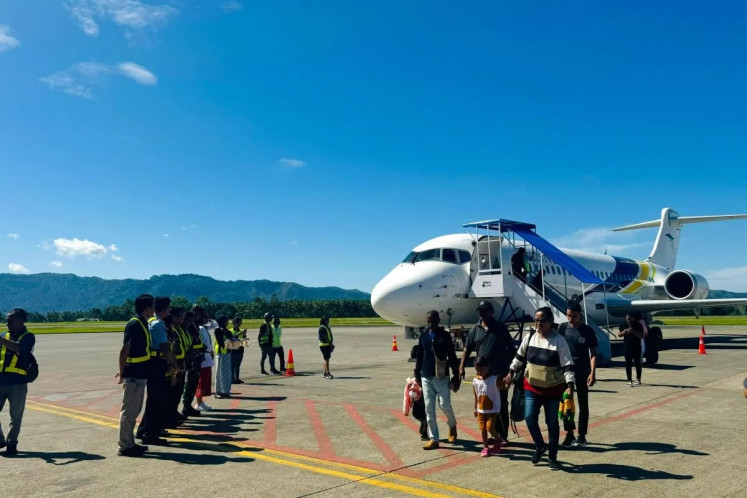Govt should keep up tax revenue efforts
The government should not be complacent with its current efforts to collect tax revenue following a weak performance in the first two months of the year, taxation experts have said
Change Size

T
span>The government should not be complacent with its current efforts to collect tax revenue following a weak performance in the first two months of the year, taxation experts have said.
Tax revenue collected in the first two months of the year was equal to 10.2 percent of the targeted Rp 1.57 quadrillion (US$110.8 billion) as outlined in the 2019 state budget.
According to the Finance Ministry’s estimates, tax revenue will have to grow 22.1 percent between March and December this year from the Rp 1.15 quadrillion collected over the same period last year in order to reach the 2019 goal.
The tax revenue performance in the first two months of the year should serve as a reminder for the government to swiftly improve collection efforts, said Yustinus Prastowo, the executive director of the Center of Indonesia Taxation Analysis (CITA).
Prastowo suggested that the tax authority tighten the monitoring of value-added tax collection by increasing surveillance in supply chains and widening the corporate taxpayers list (PKP) in high-risk sectors — or industries that are more likely to be audited — as they were big contributors to tax revenue.
The tax authority could also intensify efforts to crack down on the abuse of tax invoices, he said.
Prastowo also suggested that the tax authority send a strong message to recalcitrant taxpayers by conducting an investigation based on taxpayer data provided by the Automatic Exchange of Information (AEOI) — a global initiative to fight tax evasion and tax avoidance — and information gathered through the previous tax amnesty.
Meanwhile, Suahasil Nazara, the Finance Ministry’s fiscal policy agency head, said the government would continue monitoring revenue collection on a monthly basis, including non-tax revenue (PNBP), to identify which component of state income required special attention from the government.
The tax authority collected Rp 160.85 trillion in tax revenue as of February this year, a 4.6 percent year-on-year (yoy) increase, data from the Finance Ministry show.
The amount of tax revenue collected was higher than the Rp 153.7 trillion recorded during the first two months of 2018. However, the latest growth realization of 4.6 percent was lower compared to the 13.7 percent increase in the same period of last year.
The notable revenue decline was recorded in value-added tax and the luxury goods tax (PPnBM) that contracted 10.4 percent to Rp 57.44 trillion by the end of February, lower than the Rp 64.2 trillion collected over the same period last year.
Income tax from the non-oil and gas sector and oil and gas sector grew 13.48 and 34.85 percent respectively.
However, Finance Minister Sri Mulyani Indrawati argued that the revenue collection as of February this year, particularly in value-added tax and the luxury goods tax, could not be compared directly to what happened last year as a new regulation caused prominent taxpayers to apply for tax refunds.
“If we compare [the latest revenue] with last year’s, the comparison is not apples to apples because in February this year, there were already many tax refund [applications],” said Sri Mulyani recently.
The ministry issued Finance Ministerial Regulation No. 39/2018 in April last year, which simplifies the procedure for taxpayers to apply for tax refunds. The regulation guaranteed that taxpayers, particularly corporations, who overpaid value-added tax and PPnBM would be refunded within a month without having to be checked by the tax office.
The regulation led to increase in tax refunds. In the first two months of the year, tax refunds for value-added tax and PPnBM reached Rp 28 trillion, higher than the Rp 19.6 trillion recorded over the same period last year.
The top three industries that asked for refunds were palm oil, mining and basic metal. The three industries were given back Rp 11.1 trillion of their overpaid value-added tax and PPnBM between January and February, according to Finance Ministry data.
Sri Mulyani said the government approved their tax refunds as most of them were export-oriented industries, and therefore their tax refund application signaled they performed positively in exports.
However, Darussalam, a managing partner of Danny Darussalam Tax Center (DDTC), said a simplified tax refund procedure should not be blamed for the slowdown in the growth of tax revenue, considering the refund was part of taxpayer rights.
He said the sluggish yoy growth in tax revenue was partially caused by poor execution in collecting value-added tax and PPnBM as well as income tax from the non-oil and gas sector, particularly manufacturing industries.
Taxes paid by the manufacturing sector — the largest tax revenue contributor — amounted to Rp 36.87 trillion between January and February this year, contracting 11.3 percent yoy.









